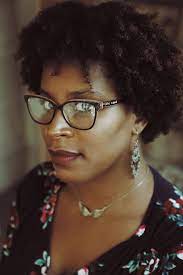

 University of Minnesota Press
University of Minnesota Press
Computational Humanities


Key Metrics
- Jessica Marie Johnson
- University of Minnesota Press
- Paperback
- 9781517915988
- 10 X 7 X 0.7 inches
- 1.37 pounds
- Social Science > Media Studies
- English
 Secure Transaction
Secure TransactionBook Description
The first book to intervene in debates on computation in the digital humanities
Bringing together leading experts from across North America and Europe, Computational Humanities redirects debates around computation and humanities digital scholarship from dualistic arguments to nuanced discourse centered around theories of knowledge and power. This volume is organized around four questions: Why or why not pursue computational humanities? How do we engage in computational humanities? What can we study using these methods? Who are the stakeholders?
Recent advances in technologies for image and sound processing have expanded computational approaches to cultural forms beyond text, and new forms of data, from listservs and code repositories to tweets and other social media content, have enlivened debates about what counts as digital humanities scholarship. Providing case studies of collaborations between humanities-centered and computation-centered researchers, this volume highlights both opportunities and frictions, showing that data and computation are as much about power, prestige, and precarity as they are about p-values.
Contributors: Mark Algee-Hewitt, Stanford U; David Bamman, U of California, Berkeley; Kaspar Beelen, U of London; Peter Bell, Philipps U of Marburg; Tobias Blanke, U of Amsterdam; Julia Damerow, Arizona State U; Quinn Dombrowski, Stanford U; Crystal Nicole Eddins, U of Pittsburgh; Abraham Gibson, U of Texas at San Antonio; Tassie Gniady; Crystal Hall, Bowdoin College; Vanessa M. Holden, U of Kentucky; David Kloster, Indiana U; Manfred D. Laubichler, Arizona State U; Katherine McDonough, Lancaster U; Barbara McGillivray, King's College London; Megan Meredith-Lobay, Simon Fraser U; Federico Nanni, Alan Turing Institute; Fabian Offert, U of California, Santa Barbara; Hannah Ringler, Illinois Institute of Technology; Roopika Risam, Dartmouth College; Joshua D. Rothman, U of Alabama; Benjamin M. Schmidt; Lisa Tagliaferri, Rutgers U; Jeffrey Tharsen, U of Chicago; Marieke van Erp, Royal Netherlands Academy of Arts and Sciences; Lee Zickel, Case Western Reserve U.
Author Bio
Jessica Marie Johnson is an Assistant Professor in the Department of History at the Johns Hopkins University and a Fellow at the Hutchins Center for African and African American Studies at Harvard University. She is also the Director of LifexCode: Digital Humanities Against Enclosure. Johnson is a historian of Atlantic slavery and the Atlantic African diaspora. She is the author of Wicked Flesh: Black Women, Intimacy, and Freedom in the Atlantic World (University of Pennsylvania Press, August 2020).
Johnson’s Wicked Flesh: Black Women, Intimacy, and Freedom in the Atlantic World is the:
winner of the 2020 Kemper and Leila Williams Prize for Louisiana History
winner of the 2020 Rebel Women Lit Caribbean Readers' Award
finalist for the 2021 Frederick Douglass Book Prize from the Gilder-Lehrman Institute for the Study of American History
honorable mention for the 2021 Barbara Christian Literary Prize from the Caribbean Studies Association
honorable mention for the 2021 Mary Alice and Philip Boucher Book Prize from the French Colonial History Society/Société d'histoire coloniale française
honorable mention for the 2021 Frederick Jackson Turner Prize from the Organization of American Historians
honorable mention for the 2021 Pauli Murray Book Prize from the African American Intellectual History Society
named a "Best Black History Book" of 2020 by Black Perspectives, the publication of the African American Intellectual History Society . She is co-editor with Lauren Tilton and David Mimno of Debates in the Digital Humanities: Computational Humanities (under peer review). She is guest editor of Slavery in the Machine, a special issue of archipelagos journal (formerly sx:archipelagos) (2019) and co-editor with Dr. Mark Anthony Neal (Duke University) of Black Code: A Special Issue of the Black Scholar (2017).
Her work has appeared in Slavery & Abolition, The Black Scholar, Meridians: Feminism, Race and Transnationalism, American Quarterly, Social Text, The Journal of African American History, the William & Mary Quarterly, Debates in the Digital Humanities (2nd edition), Forum Journal, Bitch Magazine, Black Perspectives (AAIHS), Somatosphere and Post-Colonial Digital Humanities (DHPoco) and her book chapters have appeared in multiple edited collections.
She is the Founding Curator of #ADPhDProjects which brings social justice and histories of slavery together. She is also Co-Kin Curator at Taller Electric Marronage. She is also a Digital Alchemist at the Center for Solutions to Online Violence and a co-organizer of the Queering Slavery Working Group with Dr. Vanessa Holden (University of Kentucky). Her past collaborations include organizing with the LatiNegrxs Project.
As a historian and Black Studies scholar, Johnson researches black diasporic freedom struggles from slavery to emancipation. As a digital humanist, Johnson explores ways digital and social media disseminate and create historical narratives, in particular, comparative histories of slavery and people of African descent.
She is the recipient of research fellowships and awards from the Mellon-African American Digital Humanities Initiative (AADHum) at the University of Maryland, the Woodrow Wilson Foundation, the Gilder-Lehrman Institute, the Mellon Postdoctoral Fellowship Program in the Program in African American History at the Library Company of Philadelphia and the Richards Civil War Era Center and Africana Research Center at the Pennsylvania State University, and Bowdoin College (through the Consortium for Faculty Diversity).
Source: Johns Hopkins Department of History
Videos










Community reviews
Write a ReviewNo Community reviews